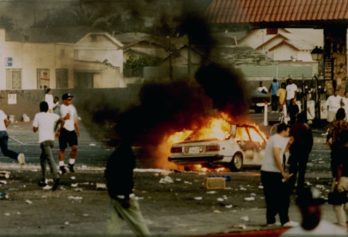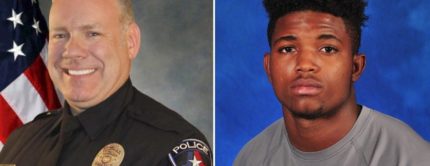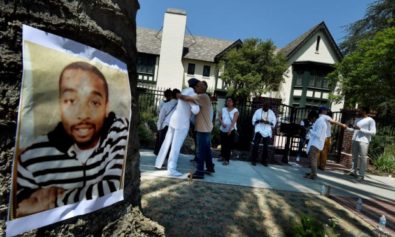Fifty years ago, with the attention of the nation on the Civil Rights movement in the South in general and Selma, AL., in particular, things were smoldering in Los Angeles. Literally.
Specifically, there was mayhem in the predominantly Black Watts area of south central Los Angeles, where a riot broke out as the community watched two white officers scuffling in apprehending a suspected Black drunk driver. The crowd grew angry on August 11, 1965, and the disgruntled witnesses took to the streets, looting businesses, beating any whites they encountered and generally engaging in what was called at the time the worst urban riot in 20 years.
It lasted five days. When it was over, 34 were dead, 1,032 injured and nearly 4,000 arrested. There was $40 million in property destroyed.
A CIA report, according to the Los Angeles Times, centered the tumult on employment issues, poor schools and a contentious relationship between the police and citizens.
Fifty years later, some of the same ills persist in Watts and south central Los Angeles.
The 8th District stretches to Baldwin Hills, where many affluent African-Americans live, but also extends to the edge of Watts, where the community is still plagued by too few jobs.
Schools are better, The Times reports, but better does not mean good. They still are not up to standards. And the distrust between the public and law enforcement remains high. Fifty years later…
“We as African American men are picked on,” said Robert Cole, one of four candidates seeking a councilman post in the troubled area. At a February 7 forum he said that he will turn 50 soon, and considered it a milestone age for Black men because many do not make it that far. He also recalled being handcuffed and placed in the back of a patrol car for an hour before being released.
It is disturbing to Cole and others that an area that was so ravaged a half century ago remains, in many ways, in the same oppressed condition it was all that time ago.
But change has come, only at a turtle’s pace. The LAPD, according to the newspaper, has made a concerted effort to be more diverse and community-active. The cops’ efforts have diminished the dissension with the community…a little.
Violence continues, however, and often the African-American man finds himself in the middle of the crimes and law enforcement.
Marqueece Harris-Dawson, another councilman candidate, said at the forum that he has had guns pointed at him five times—four times by LAPD.
“I’ve never even been accused of a felony,” he said.
The best and worst way to capture the concerns of the men seeking a place on the city council and the citizens of the community rests with the case of Ezell Ford, a mentally ill Black man who was shot down by police 49 years to the day the start of the Watts riots—last August 11.
“We still don’t even know why Ezell Ford was stopped by police,” Harris-Dawson said.


